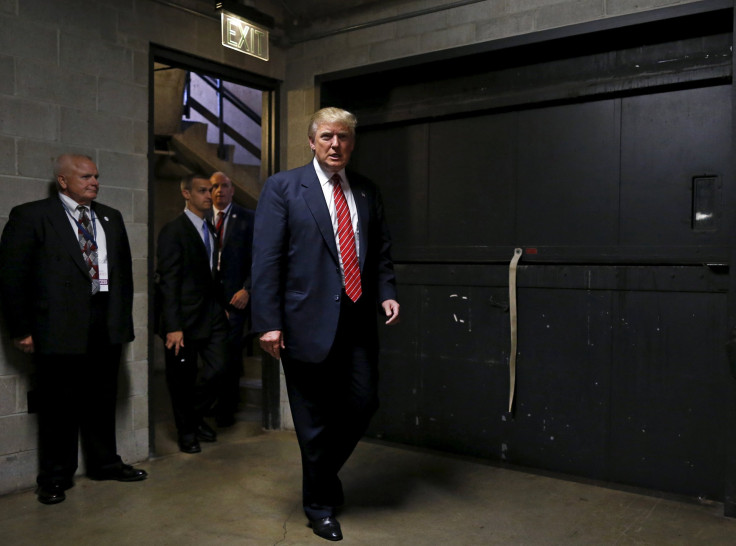Donald Trump On The Debate Stage; What Does GOP Do?

WASHINGTON -- The cameras are rolling. Millions of viewers are watching. Ten Republican candidates are lined up across the stage. And there -- drawing a disproportionate amount of attention -- is Donald Trump. There is one key question the other nine candidates are going to have to answer even before the moderator tosses out the first inquiry: How do you handle The Donald?
Until recently, the other Republican candidates had three choices -- attack, agree or ignore. Texas Sen. Ted Cruz has tended largely to agree. Former New York Gov. George Pataki -- who had nothing to lose -- was one of the earliest and most outspoken in attacking. Most of the remainder of the GOP field tried to ignore the brash real estate mogul, pushing back on his comments about Mexican immigrants only after coming under pressure from the press and Latino groups. But after Trump's denigration of Arizona Sen. John McCain's war record -- and with his top spot in the polls virtually guaranteeing him a spot on the debate stage -- it has become very tough for his rivals to ignore him.
"Donald Trump himself isn't a serious candidate,” said Texas-based Republican strategist Joe Brettell, who isn’t affiliated with any of the candidates. “However, what he represents is a restless, ongoing fatigue with professionally managed, messaged and ultimately similar candidates. Each GOP nominee would do well to reflect on the response that Trump's blunt, take-no-prisoners approach is having on the grassroots."
The front-runner always has a target on his or her back. In 2012, Mitt Romney caught heat from nearly every candidate in the field. Shutting down the leader often opens a door -- however briefly -- for another candidate to move forward. In an hourlong debate with 10 rivals, plus the time it takes to ask questions, each candidate can only expect about 5 minutes of talking time. And they’ll be trying to make an impression.
“Trump will inevitably be a big part of the headline,” said University of Virginia political science professor Larry Sabato. “So the other candidates have to figure out how they want to fit into the headline. Maybe Cruz defends Trump. The others will have a memorized ‘gotcha’ line ready to hurl at Trump. And one thing we know for sure: Trump will fight back.”
But Sabato suggested that after tossing a punch, the rest of the candidates may be wise to back away. “You never get in a wrestling match with a pig. The pig likes it, and you’ll get filthy,” Sabato said. “So my guess is that after the obligatory response to Trump, most contenders will try to inject their pet issues or platform. Those watching will be somewhere around 80 percent GOP voters in primaries and caucuses, and once Trump recedes, maybe those voters will remember the more substantive impressions that the non-Trump politicians leave.”

In fact, the other candidates probably don't need to engage with Trump's views on McCain or to contrast his comments on immigration with his earlier support for a path to citizenship. They don't need to highlight his formerly pro-choice views -- or his three marriages -- in the hopes of hurting him with social conservatives. Because even as he registers first in the polls, he remains a very long shot to win the nomination. He has some of the highest unfavorable numbers of the whole Republican field, and polls increasingly find that a significant chunk of GOP primary voters would never vote for him.
“Historically, the people who are dominant in the spring and summer before the primary don’t necessarily make it to the actual Election Day. This is why we’re not talking about President Giuliani or President Fred Thompson or others,” said Ben Dworkin, a political science professor at Rider University. “Conventional wisdom would tell you, simply ignore Donald Trump: he’s going to shoot himself in the foot at some point like he started to with his comments on John McCain.”
But if everyone else is beating up on Trump, it may be difficult for the front-runners to stay silent -- especially if their silence is interpreted as acquiescence. Jim Manley, a Democratic strategist, said it will be virtually impossible for the candidates not to take Trump on. “[A candidate] would just look weak if he didn’t stand up to him,” Manley said. “Each and every one of these guys, including Jeb Bush, is going to have to stand up to this guy. If not, they’re going to look weak in the knees.”
© Copyright IBTimes 2025. All rights reserved.






















